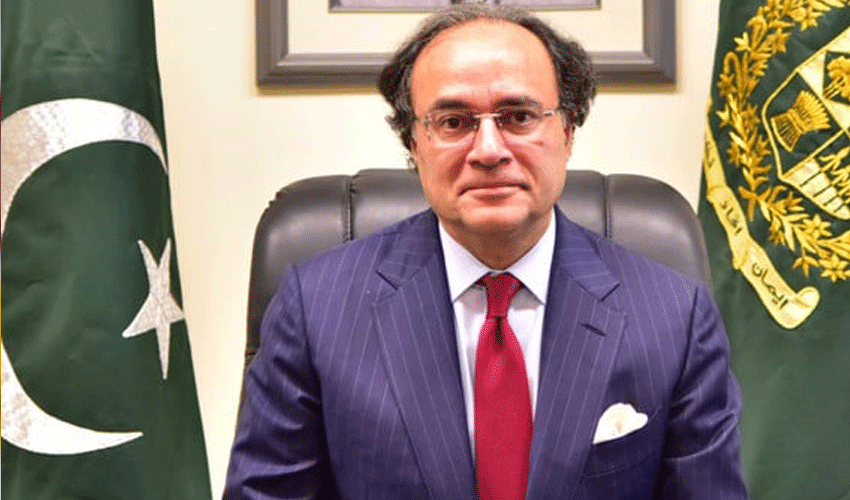Aurangzeb departs for the United States to attend World Bank and IMF meetings.

In preparation for Pakistan’s important economic review negotiations this week, Federal Finance Minister Muhammad Aurangzeb has left for Washington to attend the annual meetings of the World Bank and the International Monetary Fund (IMF).
Ajay Banga, the president of the World Bank, will host a dinner for international finance ministers, and Finance Minister Aurangzeb will meet with him during his visit. He will also speak as a keynote speaker at the Middle East, North Africa, Afghanistan, and Pakistan (MENAP) forum and meet one-on-one with IMF Managing Director Kristalina Georgieva.
The minister is expected to meet with his counterparts from China, Britain, Saudi Arabia, Turkey, and Azerbaijan as well as take part in two important events hosted by the World Economic Forum (WEF).
RELATED: The economic growth rate will continue to fall short of the aim
Aurangzeb will also meet with the Chairman of the US Congress’s Financial Services Committee, have conversations with top White House officials, and interact with prominent Pakistani Americans. Additionally, he is anticipated to interview with a few American and foreign media agencies.
IMF analysis and policy debates
In addition to the annual meetings, which will take place in Washington from October 13 to 18, Pakistan and the IMF will hold their next round of economic review negotiations. The goal of the talks is to get to a staff-level agreement that would allow the continuing loan program to release the next $1.2 billion tranche.
The group from Pakistan, which includes the State Bank governor and the finance secretary, will meet with representatives from the IFC, the World Bank, the IMF, and international rating agencies.
The policy agenda will address unsolved concerns from the previous round of negotiations, with an emphasis on fiscal restraint, governance, and economic stability, according to Finance Ministry officials.
The last round ended without a deal.
Although there was no staff-level agreement at the conclusion of the most recent IMF assessment, all parties characterized the talks as “constructive and positive.” Pakistan’s adherence to program requirements was recognized by the IMF, although additional changes were recommended to preserve macroeconomic balance and budgetary restraint.
In order to lessen financial losses, the lender also suggested pursuing energy sector reforms, keeping a strict monetary policy, and making frequent tariff adjustments.
The elimination of tax-free auto import programs and more stringent enforcement of baggage, gift, and residency transfer regulations are among the tax and governance reforms that the IMF has prioritized, according to sources.
Later this month, the Fund has also requested that Pakistan obtain clearance from the Economic Coordination Committee (ECC) for additional policy initiatives.
The governance and corruption report continues to be a major bone of contention, with the IMF urging increased accountability and transparency. The measures being reviewed include revisions to the FIA Act, the Election Act, the NAB Ordinance, and the government Servants Act, as well as required asset declarations for government servants in grades 17–22 and their families.
Ministry of Finance officials are hopeful that the next review would result in a breakthrough despite the outstanding problems. Following the IMF Executive Board’s approval later this year, Pakistan may be eligible to receive the $1.2 billion transfer if an agreement is achieved. A